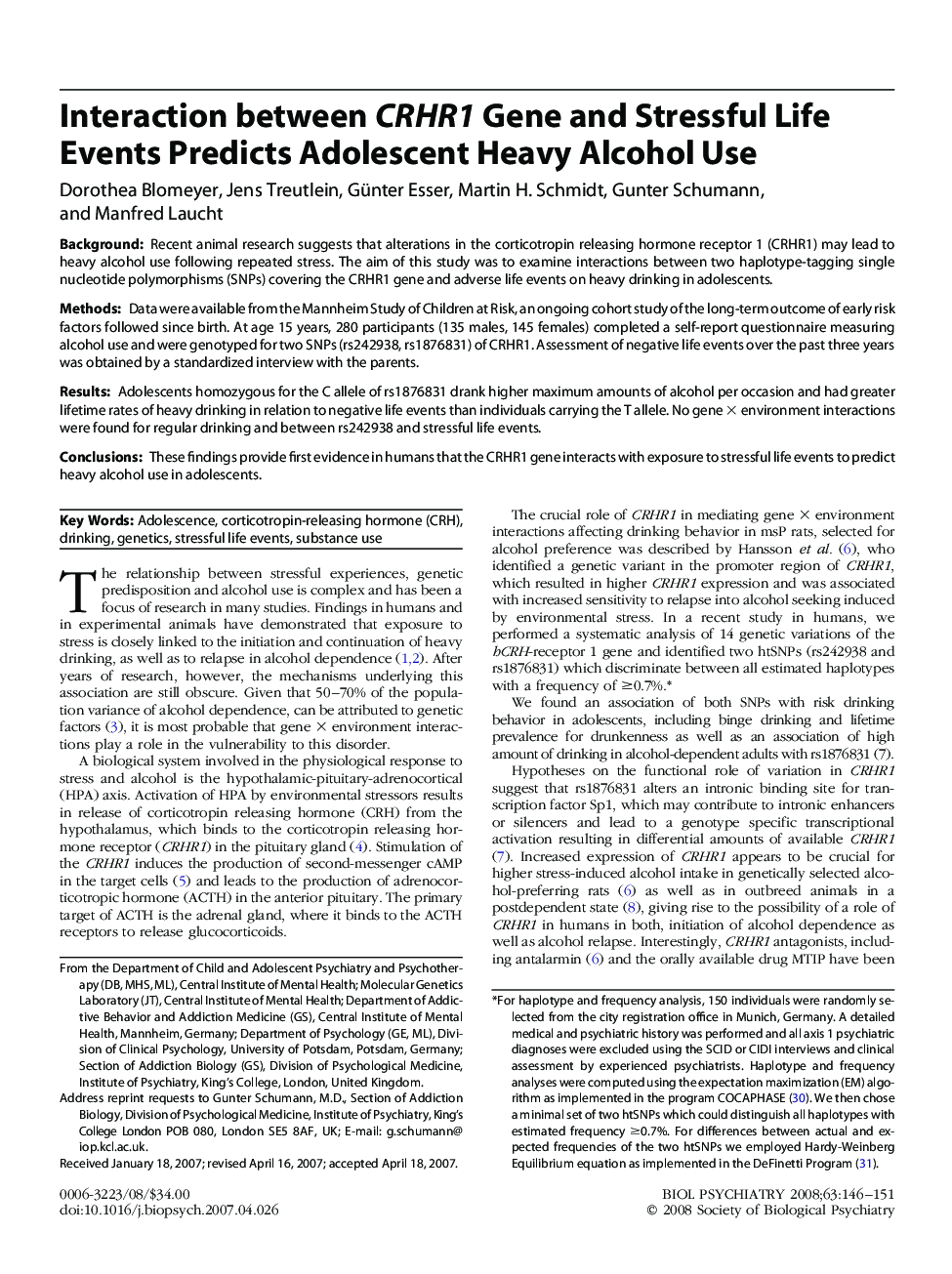| Article ID | Journal | Published Year | Pages | File Type |
|---|---|---|---|---|
| 4180802 | Biological Psychiatry | 2008 | 6 Pages |
BackgroundRecent animal research suggests that alterations in the corticotropin releasing hormone receptor 1 (CRHR1) may lead to heavy alcohol use following repeated stress. The aim of this study was to examine interactions between two haplotype-tagging single nucleotide polymorphisms (SNPs) covering the CRHR1 gene and adverse life events on heavy drinking in adolescents.MethodsData were available from the Mannheim Study of Children at Risk, an ongoing cohort study of the long-term outcome of early risk factors followed since birth. At age 15 years, 280 participants (135 males, 145 females) completed a self-report questionnaire measuring alcohol use and were genotyped for two SNPs (rs242938, rs1876831) of CRHR1. Assessment of negative life events over the past three years was obtained by a standardized interview with the parents.ResultsAdolescents homozygous for the C allele of rs1876831 drank higher maximum amounts of alcohol per occasion and had greater lifetime rates of heavy drinking in relation to negative life events than individuals carrying the T allele. No gene × environment interactions were found for regular drinking and between rs242938 and stressful life events.ConclusionsThese findings provide first evidence in humans that the CRHR1 gene interacts with exposure to stressful life events to predict heavy alcohol use in adolescents.
